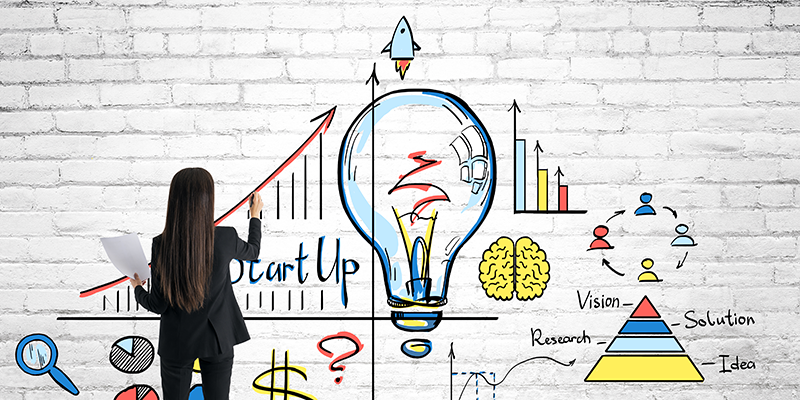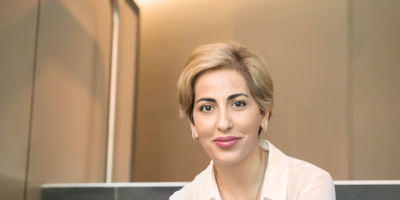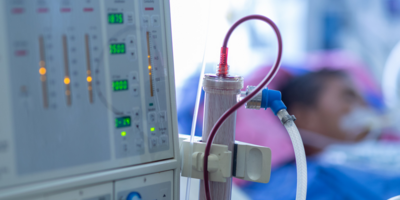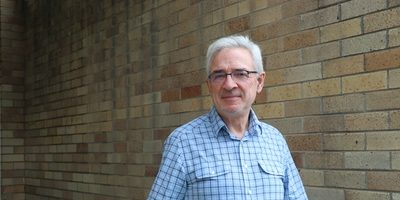
Why investing in Early Stage Health Start-ups matters
This post was originally published on LinkedIn by Dr Parisa Glass, Director of Innovation and Enterprise, and is reproduced here with her kind permission.
We’ve all heard the statistic that 80% of new businesses fail. But it’s less well known why. The simple truth is, despite the multiple options for funding – venture capital, angel investing, crowdfunding, start-up accelerator programs to name a few – a great majority of businesses fail due to lack of capital.
In fact, raising capital and finding investors is one of the hardest parts of any new business venture. A 2019 start-up survey by Silicon Valley Bank found that 88% of participants found the current fundraising environment challenging. And that is because the funding pie is small and there is a long line of people wanting a slice.
2020, however, has put health and medtech start-ups in a unique position. Investment in health technology is surging with latest estimates around US$9.1B. The COVID-19 pandemic is highlighting the need for healthcare innovation and investors and entrepreneurs around the world are picking up the mantle (as I explored in a recent article).
But the road to commercialisation of medical devices, technology and pharmaceuticals is a long one. Securing intellectual property (IP), technical refinement, rigorous clinical validation and regulatory approval processes mean that healthcare start-ups need a steady stream of funding and capital to support the long-term work that goes into creating lifesaving, and industry-disrupting treatments and preventatives.
To explore just how critical early stage investment is to healthcare start-ups, I spoke to Professor John Knight, Managing Director of Ellen Medical Devices – The creators of the Affordable Dialysis System. His story details their journey from concept to clinical trials, demonstrates how important financial support was along the way.
So John, tell us about the Affordable Dialysis System and who it is designed to help?
The lives of millions of people each year are saved as a result of renal replacement therapy (also known as dialysis). Unfortunately, not everyone has access to this treatment.
In 2015, The George Institute for Global Health published research in the Lancet showing that in 2010 around 2.6 million people received dialysis worldwide to treat kidney failure. It also found that up to 7 million people died prematurely that year due to lack of access to dialysis. Because of the world wide epidemic of obesity, high blood pressure and diabetes, which all carry a risk of kidney damage, the numbers are projected to now be 50% higher and to grow further into the future.
Dialysis techniques currently available can cost as much as US$100,000 per patient per year. This cost puts them out of reach for patients in many of the countries where access to dialysis is lowest. The research highlighted the need to develop new, simple and low-cost treatment alternative form of dialysis treatment for kidney failure.
The Ellen Medical Affordable Dialysis System addresses this need. It can deliver point of care peritoneal dialysis (PD) at a fraction of the cost of traditional dialysis. What’s more, it is portable, making access easier for people in regional and remote areas, rather than patients having to travel for treatment.
Our system is made up of a simple portable distiller which is used to sterilise water in places where the electricity supply is unreliable, and the water supply may be contaminated. The water is used to fill PD bags at the point of care. This costs just a few hundred dollars to manufacture, fits into a small suitcase and the running costs are just a few dollars a day. It has the potential to transform the way kidney disease is treated worldwide.
How did the idea for the Affordable Dialysis system come about?
After the research was publish in 2015, the George Institute announced the Affordable Dialysis Prize. It offered US$100,000 to the person or team who could create a new, simple and low-cost treatment alternative to RRT.
The competition attracted many entries, but it was won by Irish inventor and engineer Vincent Garvey. His prize-winning system stood out as having the potential to save millions of lives. Garvey partnered with The George Institute in December 2016 to establish Ellen Medical Devices. Our aim is to develop this technology and bring this innovative treatment system to kidney patients around the world.
Why was this seed funding so important for Ellen Medical?
The initial prize money was critically important for Ellen Medical. It allowed Vincent Garvey to secure our IP through hiring patent attorneys and filing global patents. IP has been protected in 10 key countries.
Early philanthropic seed funding from supportive individual private donors was used to build prototypes and create proof of concepts for our design. This was the essential first step in determining viability for the project. These working prototypes were a key factor in our later successful larger scale funding applications
You’ve received several rounds of funding – how has that helped your team?
That’s right - we received substantial additional non-dilutive funding from the NSW government’s Medical Devices Fund and from the Paul Ramsay Foundation. Both recognised the value of our innovation. This was very important as it allowed us to take several major steps forward in development. We were able to expand our team, hire the best IP, engineering and regulatory consultants and gain new expertise. We built specialised workshops and filled them with specialised equipment to build and test our prototypes. The next steps are to get ready to begin human trials and put together a regulatory approval submission.
Why is it important to invest in early stage start-ups, particular in the healthcare space?
Healthcare innovation takes a long time. It can take years for medical devices to be brought to market, and even longer for new drugs and pharmaceuticals. When they are successful, the rewards can be great. According to the team at the MedTech Actuator, the average commercial exit for Australian med tech start-ups is around AU$80M.
There are many stages to commercialisation within healthcare – patent and IP protection, prototyping and testing, consumer research, clinical trials and meeting regulatory requirements. On top of that there are office spaces, IT, workshops and of course the salaries of the people working so hard to bring the vision to life. All of this requires significant funds.
As could be expected, the medical devices industry is a highly regulated environment. To be accepted by the regulators, engineering plans and regulatory packages must be prepared by teams with the right ISO certifications. These consultants are highly experienced and sought after, and quite expensive.
Another expensive part is protecting IP. And it is particularly important at the beginning of a project, when the stakes are high to protect the IP, create proof of concept and lay foundations for growth. Investment in early stage health start-ups is therefore critical. A healthy injection of cash at the beginning of a project provides a buffer for the inevitable delays and missteps inherent in innovation and prevents companies with marketable lifesaving ideas that could have lasting effects on global health from failing at the first few challenges due to lack of resources.
What is your advice for start-ups looking for funding?
It is important to consider four key business imperatives when searching for funding:
- You need to identify a clearly defined unmet medical need. This represents the market opportunity for your investors. You need to be able to quantify this opportunity, understand the competitive landscape and demonstrate the potential ROI.
- Your idea needs to be innovative: a value proposition with a unique competitive advantage. You must also have early evidence of safety and efficacy and a robust plan to confirm it through clinical trials with patient-centered health care outcomes.
- You need a strong business case. Hard hitting potential investors are going to want to see pricing and distribution models, all backed up with a persuasive NPV analysis. This will help them understand the potential profitability of the project.
- Once these three key factors are in place, you need to secure your intellectual property. And it needs to be protected globally. The saying goes that no one should know about a new idea before your patent lawyer.
Ellen Medical Devices has seen consistent investor support over the last 5 years due to its clear patient need, innovative approach, and strong business case. But, among start-ups with similarly strong positions, their experience is not typical. Without significant investment in early stages, health and med tech start-ups are at risk of failure, preventing potentially transformational health solutions from getting to the patients whose lives depend on it.








